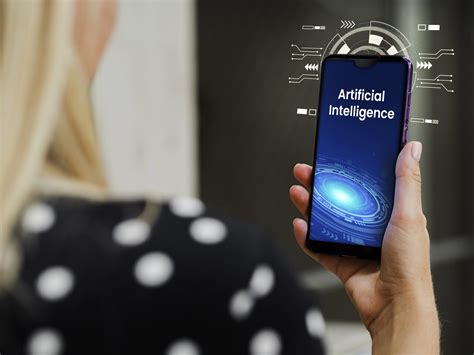The smartphone industry has witnessed unprecedented growth and innovation in recent years, transforming the way we communicate, work, and live. Mobile technologies have played a crucial role in shaping the future of smartphones, enabling faster, more efficient, and more intuitive devices. As we move forward, it's exciting to explore the latest advancements and trends that are set to revolutionize the world of smartphones.
Artificial Intelligence (AI) and Machine Learning (ML)

Artificial intelligence and machine learning are being increasingly integrated into smartphones, enabling devices to learn and adapt to user behavior. AI-powered features such as facial recognition, voice assistants, and personalized recommendations are becoming more prevalent. For instance, Apple's Face ID uses AI to create a 3D map of the user's face, providing enhanced security and convenience.
Benefits of AI and ML in Smartphones
• Enhanced security: AI-powered biometric authentication and encryption ensure secure transactions and data protection. • Personalized experiences: ML algorithms analyze user behavior, providing tailored recommendations and improving overall user experience. • Improved performance: AI optimizes device performance, extending battery life and enhancing overall efficiency.
5G Networks and Edge Computing

The rollout of 5G networks promises to revolutionize mobile connectivity, offering faster data speeds, lower latency, and greater capacity. Edge computing, which processes data closer to the device, is being integrated into 5G networks to reduce latency and improve real-time processing.
Benefits of 5G Networks and Edge Computing
• Enhanced connectivity: 5G networks provide faster data speeds, enabling seamless video streaming, online gaming, and cloud computing. • Reduced latency: Edge computing reduces latency, enabling real-time processing and improving overall user experience. • Increased capacity: 5G networks can support a vast number of devices, making it ideal for IoT applications and smart cities.
Augmented Reality (AR) and Virtual Reality (VR)

Augmented reality and virtual reality are transforming the way we interact with information and each other. AR enhances the real world with digital information, while VR creates immersive, interactive experiences. Mobile devices are being optimized for AR and VR, enabling new use cases and applications.
Benefits of AR and VR in Smartphones
• Enhanced entertainment: AR and VR enable immersive gaming, video streaming, and social experiences. • Improved productivity: AR enhances workplace training, remote collaboration, and data visualization. • New business models: AR and VR create new revenue streams for businesses, from advertising to e-commerce.
Quantum Computing and Nanotechnology

Quantum computing and nanotechnology are emerging as the next frontiers in mobile technology. Quantum computing enables faster, more secure processing, while nanotechnology improves device performance, efficiency, and sustainability.
Benefits of Quantum Computing and Nanotechnology
• Enhanced security: Quantum computing enables unbreakable encryption, protecting user data and transactions. • Improved performance: Nanotechnology enhances device performance, reducing power consumption and increasing efficiency. • Sustainable innovation: Nanotechnology enables more sustainable, eco-friendly devices, reducing electronic waste and environmental impact.
Biometric Authentication and Security

Biometric authentication and security are becoming increasingly important in mobile devices. Facial recognition, fingerprint scanning, and iris scanning are being used to enhance device security and convenience.
Benefits of Biometric Authentication and Security
• Enhanced security: Biometric authentication provides robust security, protecting user data and transactions. • Convenience: Biometric authentication enables seamless, password-free access to devices and applications. • Personalization: Biometric data can be used to personalize user experiences, providing tailored recommendations and services.






As we move forward, it's clear that mobile technologies will continue to shape the future of smartphones. From AI and ML to 5G networks and edge computing, these innovations will enable faster, more efficient, and more intuitive devices. As the smartphone industry continues to evolve, we can expect to see new use cases, applications, and business models emerge, transforming the way we live, work, and interact with each other.
We'd love to hear your thoughts on the future of smartphones! Share your comments, predictions, and ideas with us, and let's continue the conversation.
What is the impact of AI on smartphone security?
+AI enhances smartphone security by enabling advanced threat detection, predictive analytics, and personalized security measures.
How does 5G networks improve mobile connectivity?
+5G networks provide faster data speeds, lower latency, and greater capacity, enabling seamless video streaming, online gaming, and cloud computing.
What are the benefits of biometric authentication in smartphones?
+Biometric authentication provides robust security, convenience, and personalization, enhancing overall user experience.
